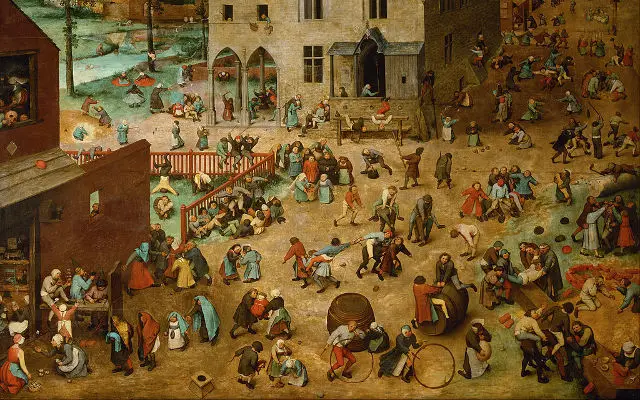Jonathan Dodd‘s latest column. Guest opinion articles do not necessarily reflect the views of the publication. Ed
Every few years a great debate springs up about which activities are actual sports and which aren’t. Usually this centres around applications by various governing bodies to be included in a forthcoming Olympics event. I have to confess I have never been able to work out what’s the difference between a sport and anything else that’s called a game or pastime.
I suppose any sport could be a pastime, because it can be engaged in for fun in a non-competitive or non-profitable way, like kicking a football about in the park. Equally, some activities which most people would consider just an amusing pastime to play with family at Christmas or on wet English holidays, can become fiercely combative competitions, like the World Scrabble Championships.
Just endless slog and graft and practice
Is Scrabble a sport or not? I always thought a sport required some sort of physical prowess, skill combined with training and dedicated practice. Stories abound of Jonny Wilkinson and David Beckham spending hours and hours just practising kicking that ball over and over again, aiming to be able to consistently reproduce the extraordinary accuracy they demonstrated on the field.
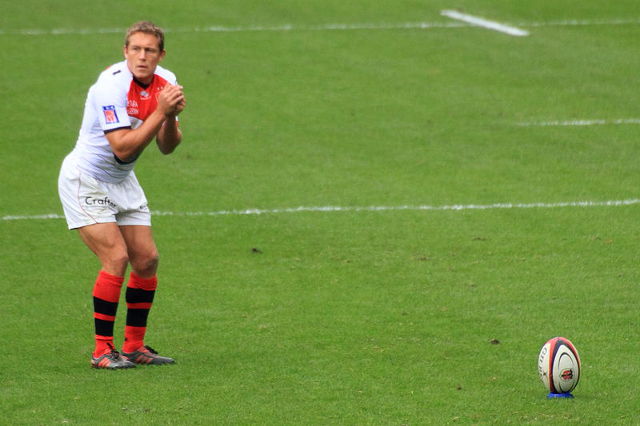
When you watch some of those goals they look immaculate and magical, but they don’t come easily. There’s no actual magic to it, just endless slog and graft and practice, above and beyond the call of duty. And there has to be a genuine skill behind it, and there has to be excellence in most of the other parts of a footballer’s or rugby player’s game. Unless you kick goals in American Football, and only turn up on the pitch to kick those two-ended bullet-shaped things they use instead of balls.
Strive to be better than you are already
The other thing you have to have if you want to be adept at a particular sport is desire and ambition. You must need desperately to win, otherwise you’ll just turn up, jog round a bit, and go home. You’ve got to keep running, and concentrating, every ball or jump or move has to be as good as it can get, and you’ve got to strive to be better than you are already.
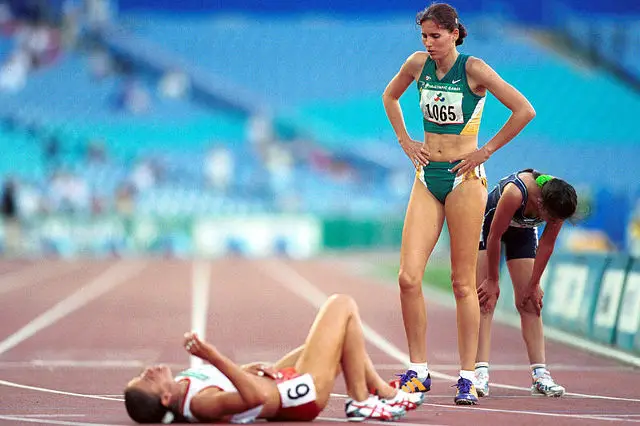
I’ve always failed to become that excited about any sport or game. Occasionally I’ve become involved in something to the point where I forgot everything except the need to win or perform better than someone else, but I don’t think I could keep it up. Not because I’m incapable, but much more because I keep thinking there are so many other things I could dedicate my life or enthusiasm to, but none of them stand out sufficiently from the crowd to warrant my full attention.
Letters which enclose poor-quality biros
This is a bit like charities. Everybody feels guilt about charity. From the cheerless and rather sinister chugger in the street to those letters which enclose poor-quality biros created by shadowy third-worlders with sad eyes and some terrible disease, it’s very difficult to fight the impulse to empty your pockets and bank balances to each worthy cause. And behind that, there would still be more and more charities asking for help.

I decided some years ago that I should send regular money to one charity, which I picked for no other reason than simply liking it. I felt that each of my small contributions would result in a specific piece of good happening to a specific person, and that worked for me. Apart from times when I needed the money myself, I’ve been doing this for decades. I know it’s hardly earth-shattering, and I’m aware that it’s very small beer compared to so many other things, but at least it’s something.
Going backwards in the game after going forwards
I can’t find a sport or game that works for me like this. I used to like Backgammon, which is a most extraordinarily-named game, now I think about it. Apparently the word is a combination of ‘back’ and ‘gammon, meaning ‘game’, and refers to going backwards in the game after going forwards. If you’ve played it you’ll know what that means. I remember a Persian student called Dariush taught me how to play in my home as a boy. That was in the days when Persia was very Westernized but was ruled as a corrupt tyranny, before it was freed by a revolution that then ruled through puritanical religious tyranny instead.
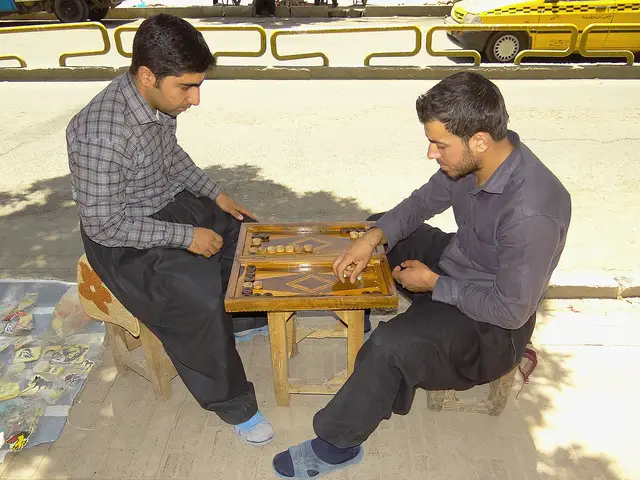
I sometimes wonder what happened to Dariush. The only other thing I remember about him was his habit of eating an orange by quartering it and spreading a generous layer of salt on it before sinking his teeth into it and sucking out the flesh. This was something I could never force myself to try. But I was, I freely admit, a very fussy eater as a child, so that doesn’t surprise me in the least. I’m no longer fussy in my eating habits, but I still think I might balk at the salted orange.
Trouble with Ballroom dancing
I can get very involved in Backgammon, but seldom find anyone who wants to play. So that doesn’t work. And I really couldn’t imagine anyone suggesting that it’s a sport. The trouble is that I can’t imagine so many other activities being sports either. I have trouble with Ballroom dancing (suggested for the Olympics once), or Ten Pin Bowling. I can’t see how darts or shooting can be sports either, because you stand still while you practise them. At least in Golf you get to walk around in between hitting that ball with that stick.

In the same way anything that involves a horse seems very suspect, especially since the horse does all the work but the rider gets the cups and the glory and is remembered for ever. Likewise Motor racing, which seems to be more a matter of how well the engineers tune the thing instead of how well the driver does. I may be being a little simplistic here though.
Aiming the thing and scrubbing ice
Take Curling. Please. It’s all about aiming the thing and scrubbing ice. That’s it. I can see there’s skill involved, that’s obvious, and modern technology makes it quite entertaining to watch on television – for about a minute and a half. And I can’t understand what on earth they’re doing. The rules seem to be obscure beyond my comprehension. And then there’s Rugby union. And Rugby League. What’s that all about?
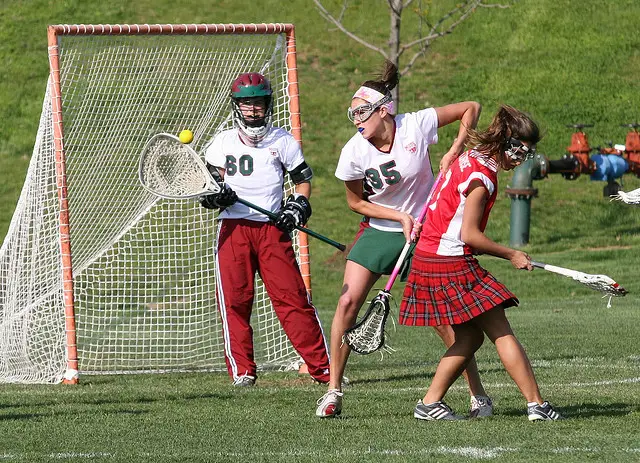
Let us not mention Lacrosse here, where they brandish their sticks like football goal-net fetishists, or Hockey. I went to a school where you played Hockey if you weren’t considered butch enough to play Rugger, and I decided if people were going to be swinging lethal sticks at me the best thing I could do was to volunteer to become a goalkeeper.
The thing they call Baseball
I stayed warm and relatively safe in layers of clothing, and was described as the worst Hockey goalkeeper ever, because I let in all the easy goals but apparently I saved brilliantly all the difficult ones. I can now reveal that I just couldn’t get out of the way of those quickly enough, with all that clobber on. But at least Hockey had rules.
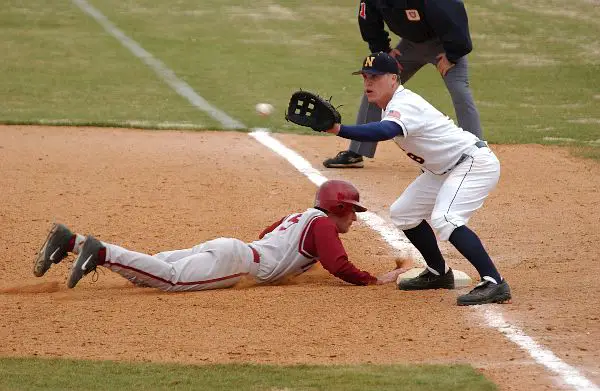
That’s another thing about some of these sports. Take Rounders, for instance, the thing they call Baseball on the other side of the Atlantic, on the American island. I never understood what on earth they were trying to do, and nobody could ever explain it to me. It’s the same with American Football. And then there’s Cricket.
Training for the next Olympics
But no matter what I think about them, they’re genuine sports, because they combine physical prowess and skill with a certain amount of what I could call animal cunning. And performance does relate to science. Even though none of the above has managed to become an Olympic sport. And even though some of that science has been used to cheat. And even though some of those encouraging the cheating have been governments themselves.
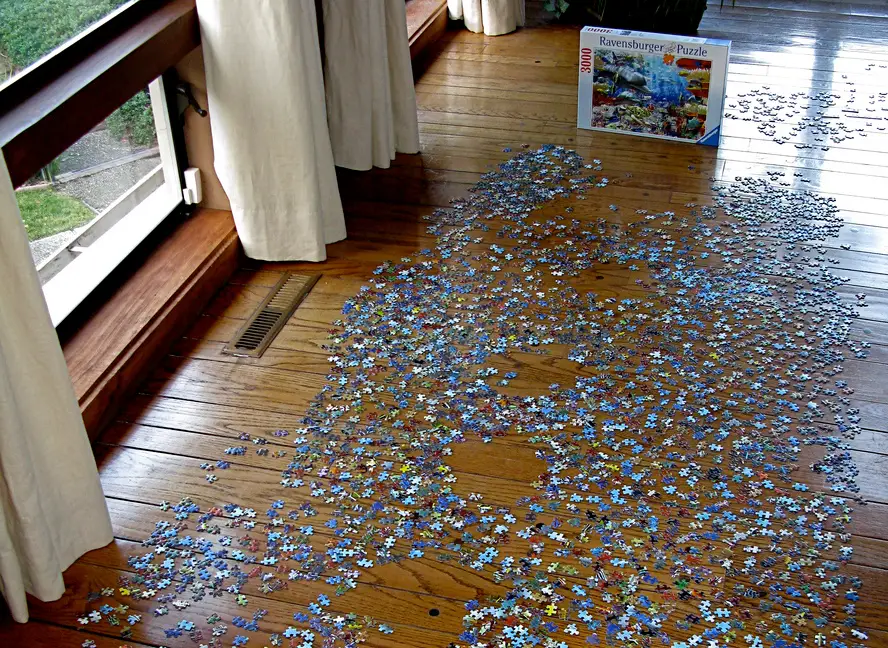
I think that’s naughty. But don’t mind me insulting practically every sport there is. I’m going back to my jigsaw. I’m training for the next Olympics.
If you have been, thank you for reading this. It’s your go now.
Image: DcoetzeeBot under CC BY 2.0
Image: Lena under CC BY 2.0
Image: Australian Paralympic Committee under CC BY 2.0
Image: Chris Denny under CC BY 2.0
Image: adam_jones under CC BY 2.0
Image: Klaus D. Peter, Wiehl, Germany under CC BY 2.0
Image: ramphoto under CC BY 2.0
Image: Tingo under CC BY 2.0
Image: jurvetson under CC BY 2.0

